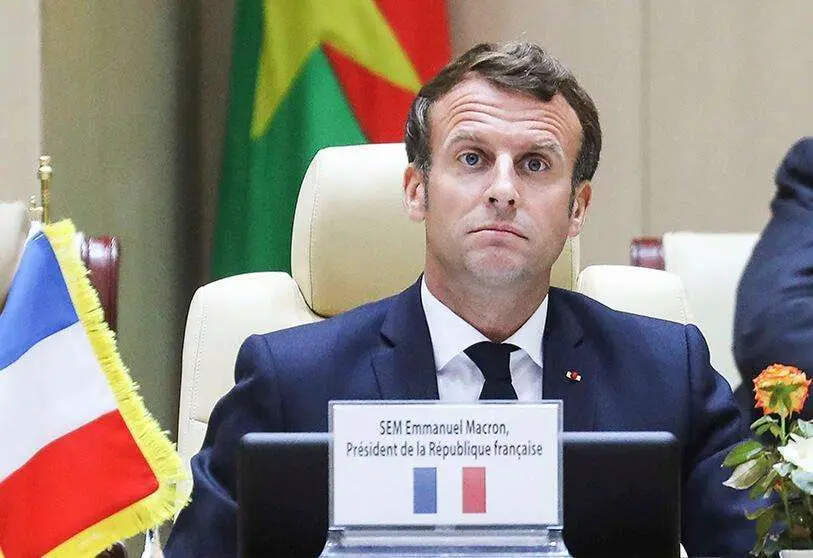France-Africa: reasons for their growing divorce

I am following with great interest the debate sparked off by Le Monde Afrique, in which the French newspaper gives the floor unrestrictedly to citizens of civil society on the continent, from Dakar to Djibouti, with a declared objective: to x-ray and dissect the increasingly antagonistic relationship between France and its former African colonies. Throughout extensive interviews, the reasons for a growing divorce emerge, which not only affects the countries of the so-called African Francophonie with their former Parisian metropolis but also the European Union itself, insofar as since the processes of decolonisation France has been the "Western gendarme" on the continent, a role that has also had the explicit consent of the United States, and which has now been called into question by its supposed beneficiaries or sufferers.
The Franco-African rift has been particularly turbulent throughout 2022. In January, the French ambassador was expelled from Bamako in response to the foreign minister's statement calling the ruling junta's power in Mali "illegitimate". And December saw the departure of the last French soldiers from Bangui, the capital of the Central African Republic. And, as the Parisian daily stresses, the cries and banners of "France, get out!" have spread to capitals such as Ouagadougou, N'Djamena and Niamey, the scene of the largest anti-French demonstrations, many of them fuelled by Putin's Russia, whose Wagner mercenaries are occupying many of the positions abandoned by the French.
I have extracted some of the most emphatic phrases from the interviewees, which in my opinion explain better than many political leaders the roots of this sentiment, which of course affects France first and foremost, but also EU Europeans, as the African sense of identity takes root in parallel, sometimes even beyond the country to which it belongs.
"The former coloniser continues to behave arrogantly towards Africans," says Papp Seen, one of Senegal's best-known journalists, who highlights this behaviour both on French soil and in French-speaking African nations.
"The France of fraternity, equality and liberty belongs to me as much as to you," says Tunisian novelist Emna Beljaj Yahia, who rejects the exclusivity of such values for the French alone, now that the interrelationship is much more intense than when they were raised in the Revolution of 1789.
"Nothing will prevent a break with France, that's what young people overwhelmingly want," says Joey Le Soldat, the stage name of the Burkina Faso rapper Joël Windtoin Samawago, whose lyrics insist on the inexorable nature of this disengagement.
"In Mali and other countries, this anger against France is the painful expression of a feeling of humiliation," says former Malian Culture Minister Aminata Traoré, who is particularly critical of the development policies implemented or promoted by France in the Sahel strip.
"I don't think the French are ready to change the way they look at Africa", says Tanella Boni, philosopher, poet and professor emeritus at the University of Abidjan, one of Côte d'Ivoire's most followed and respected intellectuals, pessimistically.
"France has sold its civilisation to us, but in return it has downgraded our own African cultures," says another rapp singer, in this case from Togo, Elom 20ce, stage name Elom Kossi Winceslas.
"It is we Africans who must raise up responsible [leaders], capable of talking on equal terms with France, China and Russia," says Cameroon's first woman lawyer, Alice Nkom, with evident signs of self-criticism, calling for recognition of the continent's coming of age, doubled by the responsibility of its citizens to find the best leaders.
"In Chad, France seems to want to see and hear nothing other than the maintenance of stability," says anthropologist Remadji Hoinathy, for whom this exclusive preoccupation favours authoritarianism and the establishment and prolongation of power dynasties that are hardly compatible with democracy.
President Emmanuel Macron had proposed renewing France's ties with the continent through new initiatives, such as the so-called FARM (which, curiously enough, is an acronym for Food and Agriculture Resilience Mission), which, in the opinion of the moderators and interviewers of Le Monde-Afrique, "have clearly proved insufficient to win back hearts". They also recall that the last Francophonie Summit, held in November in Tunis, "offered the spectacle of a weary family reunion", tired after all of not seeing true equality between the French and Africans.
Can this relationship be restored? If the answer is no in practice, there is little doubt that others will take its place, and they are already doing so, and in droves. China and Russia are demonstrating this, so far with the consent of the Africans themselves. France, Spain, the EU in short, will have to be much more vigilant.

